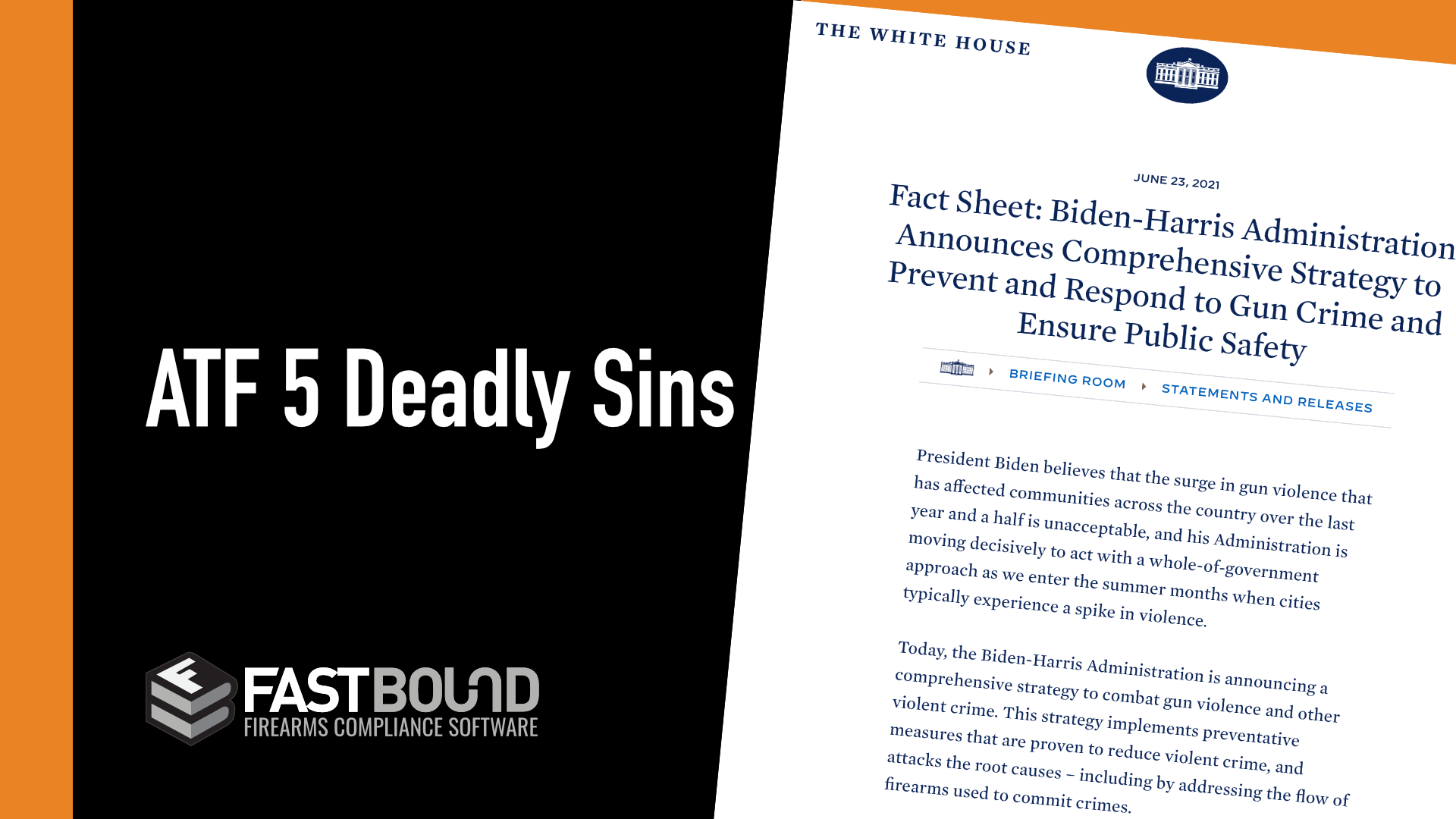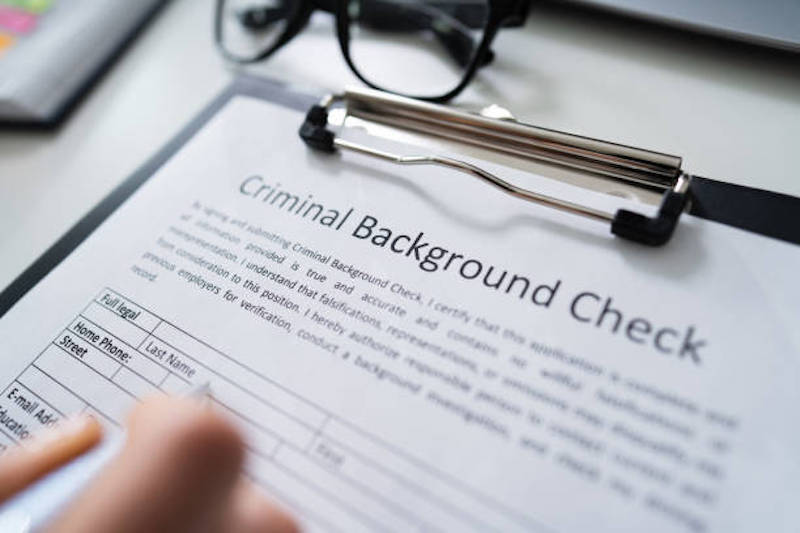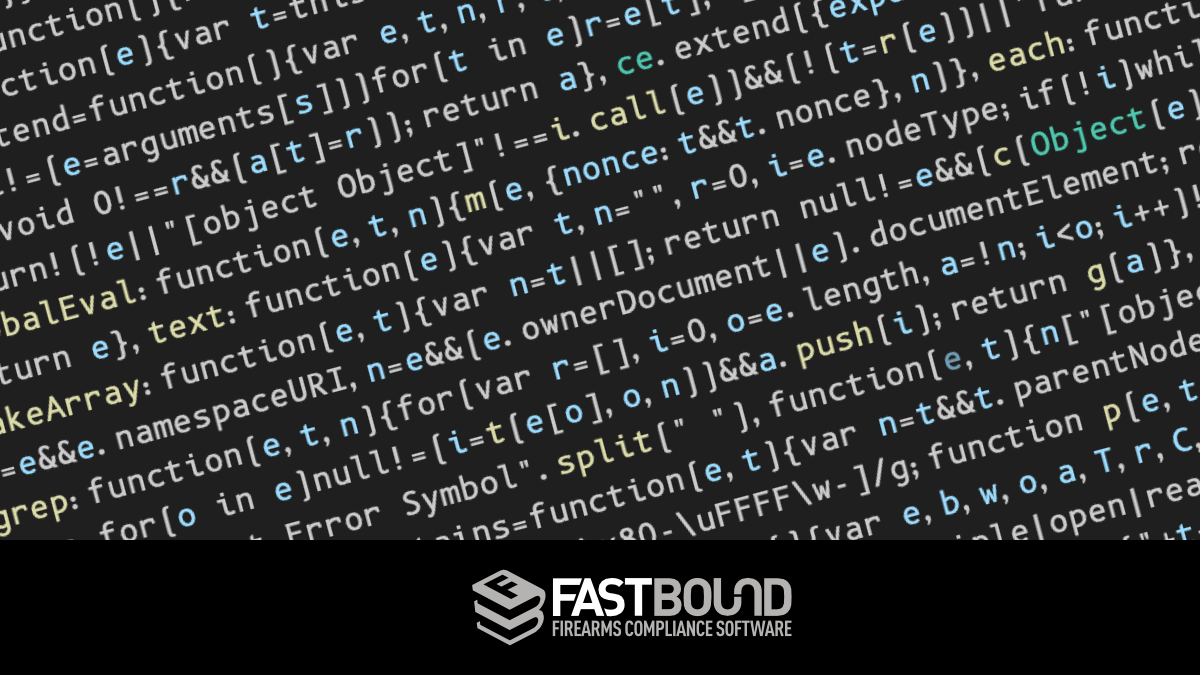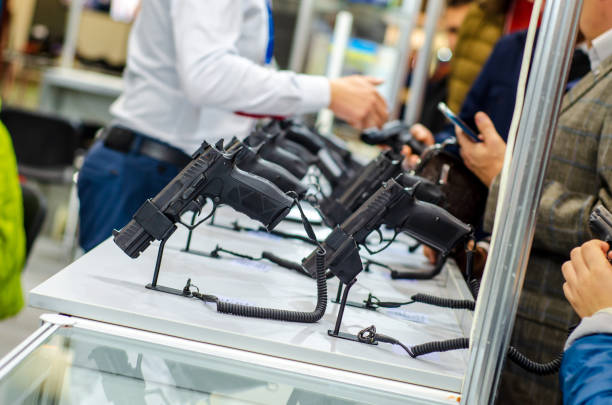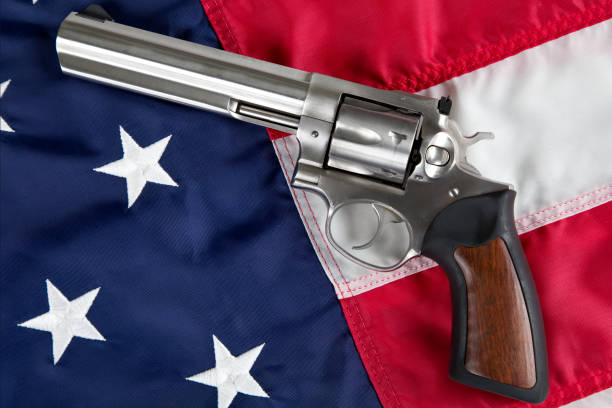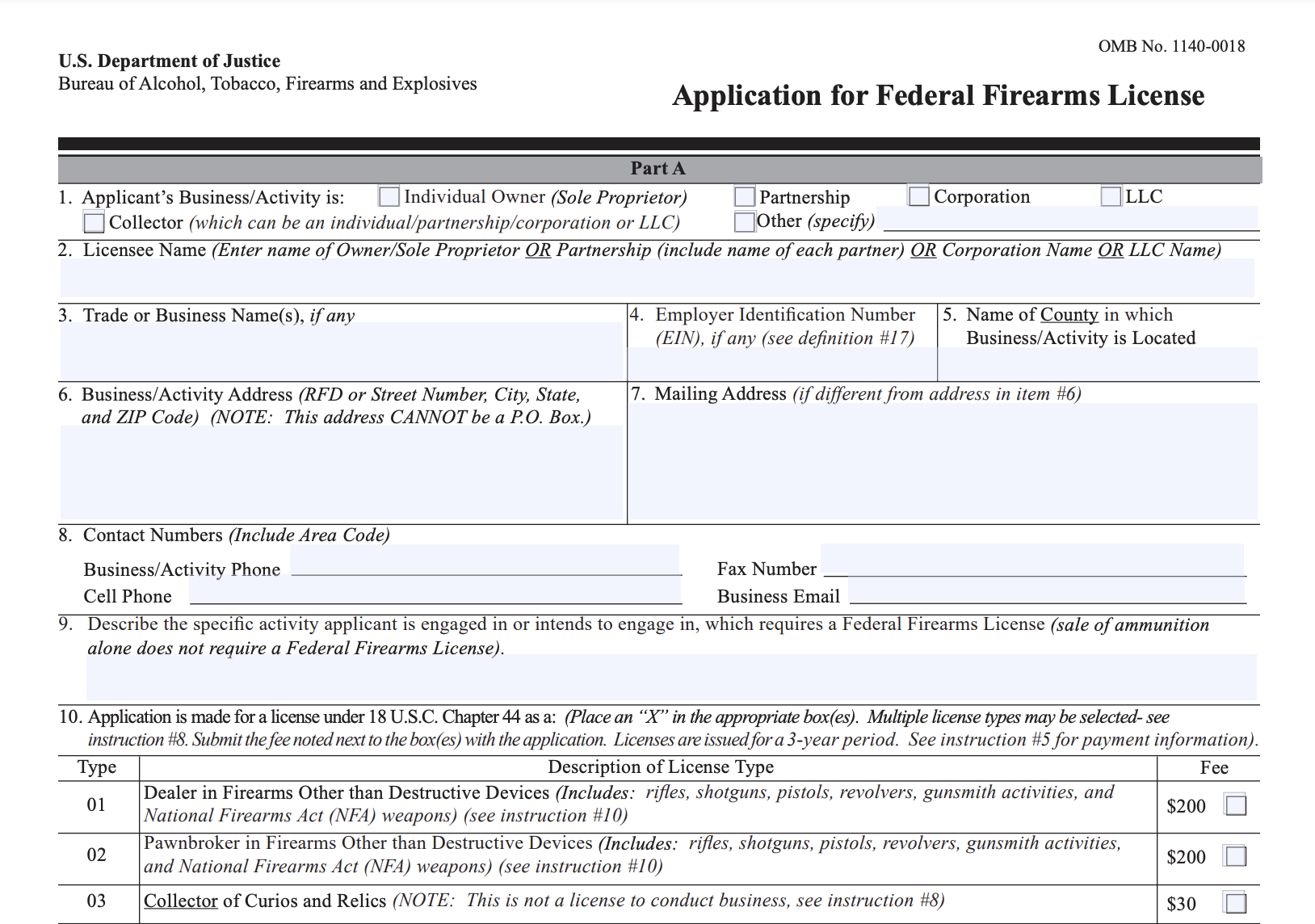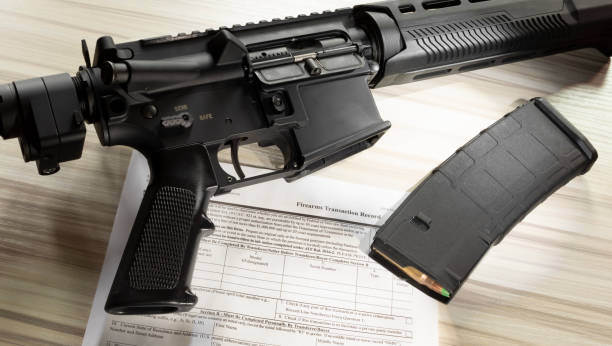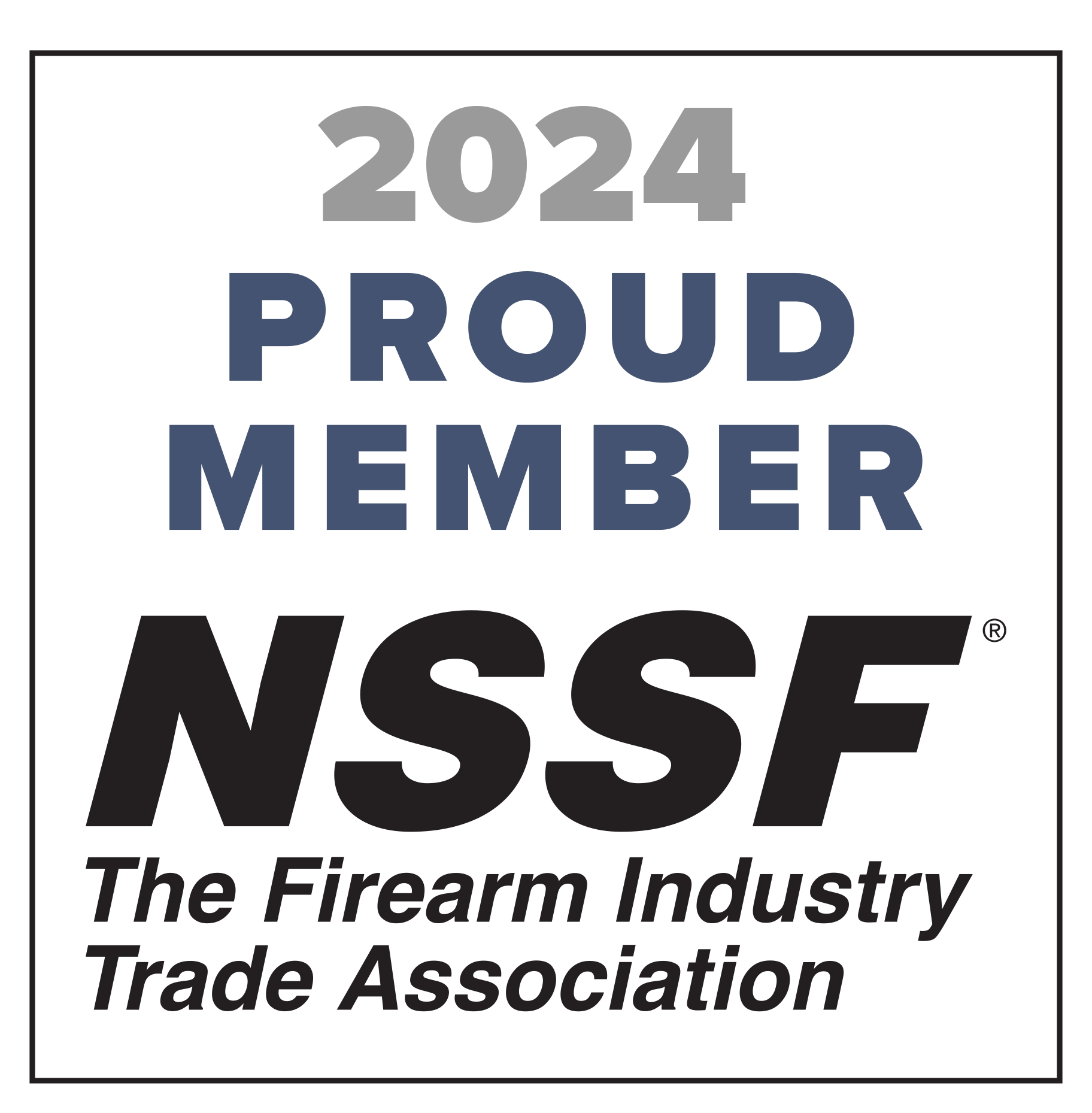Firearm dealers are finding themselves in a regulatory climate that the firearms industry and even the Justice Department have never seen the likes of.
According to The Bureau of Alcohol, Tobacco, and Firearms (ATF), revocation notices issued by field divisions from October 2021 were up 675% compared to the same time frame of an average year. Many of these revocations originated from errors on 4473s, and many are from previously closed inspections from several months prior.
Why such an increase? The White House and the Biden Administration have committed to targeting rogue gun dealers who wilfully violate Federal law, which can lead to assault weapons and other firearms making it into the hands of convicted felons or those with mental illness, and possibly being used in violent crimes, domestic violence against family members, mass shootings, or other criminal activity targeted at police officers or the American people.
Concerns over these revocations have reached ranking members of Congress’s radar. In June of this year, 25 Members of Congress sent a letter to ATF, demanding an explanation for the sharp uptick in revocation proceedings based on minor infractions alleged in previously closed inspections. The letter noted that the businesses had fully resolved the issues at or before the time of the prior inspection and had no new infractions cited between the inspection and the notice of revocation. The Federal Government has raised eyebrows at these inspections, and so should you. There is a lot more in that letter, but the underlying message is clear: compliance for Federal Firearms Licensees has never been more important, nor has it ever been more in question. The days of “my last ATF inspection went fine, so we are fine” are long gone.
ATF has been making themselves available and speaking at industry events to discuss what they consider to be the five violations that will lead to revocation. Remember, this is from ATF, not the industry. As you can see from the above, these “5 Deadly Sins,” as they have become known, may not be the only thing that causes your FFL issues. Just know that these five absolutely will cause you issues.
Zero Tolerance Policy
Since the 1986 Firearm Owners Protection Act amendments to the United States Gun Control Act (GCA), Federal Firearms Licensees (FFLs) can only have their license revoked for willful violations of the Act. The word willful isn’t formally defined in the GCA. Still, court decisions have established it to mean a knowing violation of a legal duty or plain indifference to or disregard of a known legal duty.
Since 1986, although ATF can only revoke an FFL for willful violations, it has used its discretion not always to do so, although revocations for a single violation have happened. In 2021, at the direction of the Biden Administration and Justice Department, ATF published a list of five violations that, if cited on an inspection and willfully committed, will require a mandatory Notice of Revocation. ATF has stated that these five violations constitute public safety risks.
The Five Deadly Sins
1. Transferring a firearm to a prohibited person
The GCA established categories of persons prohibited from receiving or possessing firearms, listed on Form 4473 at question 21. b – l. It is a crime for any person to transfer a firearm to whom they have reasonable cause to believe is a prohibited person. (There is a hunting license exception for 21. l.)
If a firearm transferee/buyer answers yes to any of those questions on their Form 4473 and the FFL transfers the firearm, the FFL has transferred a firearm to a person they had reasonable cause to believe was a prohibited person because they stated to the FFL that they were. Not even a “proceed” response from NICS does not excuse this violation, as NICS does not have access to all criminal or court records.
An FFL must thoroughly review Form 4473 before conducting the NICS check or continuing with the sale to prevent this from happening.
Also, if a person’s NICS response is “denied,” they are prohibited and cannot receive or possess a firearm. If the FFL transfers the same firearm the denied person wanted to an accomplice of the NICS-denied person, the FFL has made a straw sale and has reasonable cause to believe the firearm will go to the denied person. A straw sale can also occur if a firearm is transferred to a person of the same last name or address as the denied person.
To prevent this from happening, FFLs must train themselves and their staff to recognize and stop straw sales before they happen.
2. Failing to conduct a required background check
Federal Regulation 27 CFR 478.102 (a). requires a NICS check for every firearm transfer to a non-FFL. There are some exceptions to this requirement. Per the requirements of 27 CFR 478.102 (c), a NICS check is for a single transaction and is valid for a period not exceeding 30 calendar days from the date the seller initially contacted NICS. The FFL must initiate a new NICS check if the transaction is not completed within 30 days.
FFLs who make even a single sale to a person whose NICS check occurred 30 days prior are still receiving Notices of Revocation because they failed to conduct the required new NICS check even if the initial response is proceed, but the person could not pay for the firearm and did not return for over 30 days. This failure is currently among the leading causes of FFL revocation.
Manufacturers, importers, and retailers should be aware that allowing employees or other authorized individuals to take a firearm off-premises, even temporarily, for a sporting purpose is a transfer that requires the completion of Form 4473 and a background check.
To prevent this from happening, FFLs must develop a system to identify the 30-day period of validity of the NICS check when a “delayed” NICS response is received or a transfer does not immediately happen. Whether this is by a sticky note or other means, the FFL and employees must be aware of and adhere to it. FFLs cannot afford a single error.
One of the exceptions to the NICS check requirement can be found at 27 CFR 478.102 (d), also known as the state firearm permit exception. If ATF has determined that a state’s firearm permit is valid as an exception to a NICS check, the FFLs in that state are notified in writing. However, the permit is valid as an exception only for transfers in the state it was issued and only for five years from the date of issuance.
FFLs have been revoked for making even a single sale of a long gun to a resident of another state, where the transferee/buyer presents a firearm permit from that state and the FFL does not conduct a NICS check. A NICS check is required. Similarly, FFLs can be revoked if the permit presented in the state of issuance is no longer valid or was issued more than five years before the transfer date.
To prevent this, FFLs must verify if ATF qualifies their state’s firearm permit as an exception to a NICS check and that they cannot use a permit issued by any other state as a NICS exception. Also, FFLs must ensure that the permits presented have not expired and are not more than five years old.
3. Falsifying records, such as a firearm transaction form
It should be clear to all FFLs that falsifying records will lead to license revocation and probably criminal prosecution. FFLs must make it clear to all employees that falsifying records is unacceptable and will lead to termination of employment and referral to law enforcement.
One of the more common falsification schemes involves the addition of another firearm to a Form 4473 that the transferee did not buy. FFLs can instruct employees to strike through unused lines in Section A.
Another common mistake is to record “proceed” in block 27 when ‘denied’ is received. All gun dealers should know that Federal Agents will have a list of denied NICS Transaction Numbers in their possession during ATF inspections.
4. Failing to respond to a trace request
Federal Regulation 26 CFR 478.25a Responses to requests for additional information require each FFL to respond immediately but not later than 24 hours after a trace request is received from the ATF National Tracing Center. Even if an FFL has no record of receiving that firearm, the FFL must respond to the NTC, allowing them to conduct further research. There is no excuse for not responding.
To prevent this from happening, FFLs must respond to each serial number on an NTC trace request as soon as possible and establish means for trace responses to continue if the shop is closed for vacations, remodeling, or relocation.
5. Refusing to permit ATF to conduct an inspection
Under Federal Regulation 27 CFR 478.23, ATF officers have the right, without an inspection warrant, to enter the premises of an FFL not more than once during any 12 months to examine records and documents required to be kept and the inventory of firearms and ammunition. Such an inspection must occur within the hours of operation of the FFL as stated on its application for a license or at other times with the consent of the FFL.
Also, ATF officers have the right of entry at any time concerning records relating to a firearm involved in a criminal investigation traced to the licensee or when such inspection or additional information is needed to determine the disposition of one or more particular firearms in the course of a bona fide criminal investigation.
FFLs should be ready for ATF inspections at any time. Responsible persons must be available to be present for the inspection.
State Law Violation Referral Program
Another less publicized part of the Zero Tolerance Policy is the referral of state firearm law violations found on ATF inspections to state law enforcement agencies in states that issue licenses to firearm retailers. The goal is to allow state agencies to revoke state licenses if they deem appropriate.
FFLs in the 15 states that license firearm retailers must always comply with all state firearm laws.
Washington, Hawaii, California, Alabama, Illinois, Indiana, Pennsylvania, Delaware, New Jersey, Maryland, Rhode Island, Massachusetts, Connecticut, New York, and New Hampshire currently require firearm retailers to obtain a state license to conduct business. While some of these states conduct inspections of FFLs for state compliance, many do not.
Under the Zero Tolerance Policy, ATF will share inspection findings with these states as a “force multiplier.” The goal is to let the states determine if the ATF-shared information would allow the revocation of the state license of the retailers referred and put them out of business.
